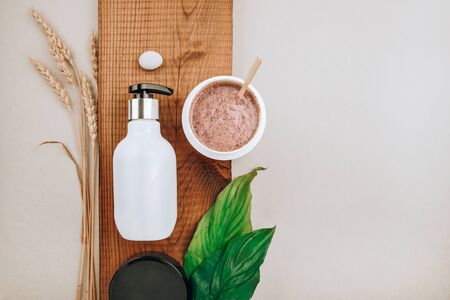Rediscovering Classic British Cleaning Traditions
Long before modern cleaning sprays and synthetic detergents lined our supermarket shelves, British homes were kept spotless through time-honoured methods rooted in the rhythms of nature. These traditional practices, passed down through generations, celebrated simple ingredients such as vinegar, baking soda, and lemon—items readily available in every household pantry. The charm of these classic approaches lies not only in their effectiveness but also in their gentle respect for both our living spaces and the environment. Today, with a growing awareness of eco-wellness and a desire to reduce our chemical footprint, many are looking back to these old-fashioned solutions for inspiration. Embracing natural cleaning methods is not just a nod to nostalgia; it’s a practical return to sustainability that aligns beautifully with modern eco-conscious values, proving that what worked for our ancestors can still bring harmony and health to contemporary British homes.
Natural Ingredients at the Heart of British Homes
For generations, British households have turned to a handful of humble yet powerful natural ingredients for cleaning and caring for their homes. These time-honoured staples—baking soda, vinegar, lemon, and traditional soap—have graced kitchen cupboards and under-sink shelves across the UK, valued not only for their effectiveness but also for their gentle impact on health and the environment. Embracing these eco-friendly alternatives is a return to mindful, sustainable living—a cornerstone of modern wellness in Britain.
Baking Soda: The Versatile Essential
Baking soda, or bicarbonate of soda as it’s commonly known in the UK, has been a household favourite for everything from freshening up fridges to scrubbing stubborn stains. Its gentle abrasive quality makes it ideal for tackling tea-stained mugs and limescale without scratching delicate surfaces.
Vinegar: Nature’s Multi-Tasker
White distilled vinegar is revered for its ability to cut through grease, neutralise odours, and dissolve mineral build-up. Its acidic nature makes it particularly effective for cleaning glass, tiles, and even removing mildew—a handy ally in Britain’s often damp climate.
Lemon: Freshness with a Zest
The natural antibacterial properties of lemon juice have made it a go-to solution for cleaning chopping boards, deodorising bins, and leaving a fresh scent throughout the home. Lemon’s citric acid effortlessly tackles water marks and soap scum, bringing brightness to both kitchens and bathrooms.
Soap: The Gentle Classic
Traditional bars of pure soap—often made from simple plant oils—are still cherished for washing everything from dishes to delicate fabrics. Free from synthetic additives, these soaps are kind to skin and waterways alike.
A Snapshot of Traditional Natural Cleaning Agents in British Homes
| Ingredient | Main Uses | Benefits |
|---|---|---|
| Baking Soda (Bicarbonate of Soda) | Scrubbing surfaces, deodorising carpets & fridges | Mildly abrasive, odour-neutralising, non-toxic |
| White Vinegar | Glass cleaning, limescale removal, disinfecting | Antibacterial, dissolves mineral deposits, natural deodoriser |
| Lemon Juice | Removing stains, freshening air & surfaces | Antimicrobial, leaves pleasant fragrance, cuts through grease |
| Pure Soap Bars | General washing & cleaning tasks | Biodegradable, gentle on skin and fabrics |
This trusted quartet continues to stand the test of time in British homes—offering not just sparkling results but peace of mind that comes from choosing wholesome solutions rooted in tradition and care for our shared environment.
![]()
3. Eco-Friendly Practices from the British Countryside
The rolling hills and quaint villages of the British countryside have long been a source of inspiration for those seeking gentle, natural approaches to daily life. When it comes to cleaning, rural communities across England, Scotland, and Wales have traditionally relied on what nature provides, crafting solutions that are both kind to the home and the environment. These time-honoured methods reflect a deep respect for the land, as well as an innate understanding of how simple ingredients can support a wholesome lifestyle.
Herbal Infusions: Nature’s Cleaning Allies
One cherished countryside tradition is the use of herbal infusions for household cleaning. Lavender, rosemary, and mint—often grown in cottage gardens—were steeped in hot water to create fragrant liquids used for wiping down surfaces or freshening up linens. Their natural antibacterial properties not only helped maintain cleanliness but also left behind a soothing scent reminiscent of summer meadows.
Homemade Solutions with Local Ingredients
Resourcefulness has always been at the heart of rural living. Common kitchen staples like vinegar, bicarbonate of soda (baking soda), and lemon juice were mixed together to tackle everything from limescale in kettles to stains on wooden worktops. These simple blends were passed down through generations, valued for their effectiveness and safety compared to harsh chemical alternatives.
Lessons in Sustainable Living
The beauty of these countryside practices lies in their sustainability. By making use of what was available locally and seasonally, rural Britons minimised waste and avoided synthetic additives. This thoughtful approach is especially relevant today as we seek ways to reduce our ecological footprint without compromising on a clean and welcoming home environment.
Embracing the gentle wisdom of the countryside not only honours British heritage but also offers practical solutions for modern eco-wellness. Whether it’s brewing up a batch of herbal cleaner or scrubbing with pantry staples, these methods remind us that often, the simplest traditions are those best suited for nurturing both our homes and our planet.
4. The Role of Herbal Remedies in Household Care
Throughout British history, herbs have played a vital role in both domestic cleaning and family wellness. Long before the advent of chemical-based products, households across England, Scotland, and Wales relied on native plants to freshen their homes and protect against illness. The gentle fragrances of lavender, rosemary, and mint were more than just pleasing scents—they were trusted allies in the pursuit of healthful living.
Traditional Uses of Key British Herbs
Lavender, with its calming aroma, was often scattered among linens or tucked into wardrobes to deter moths and impart a fresh scent to clothing. Rosemary branches were commonly placed near windows or burned as a natural disinfectant during times of illness. Mint leaves found their way into wash basins and floor washes, valued for their invigorating freshness and mild antibacterial properties.
Common Herbal Cleaning Applications
| Herb | Traditional Use | Wellness Benefit |
|---|---|---|
| Lavender | Scenting linens, deterring insects | Promotes calm, aids sleep |
| Rosemary | Disinfecting air and surfaces | Boosts alertness, relieves stress |
| Mint | Freshening rooms and water | Uplifts mood, soothes headaches |
A Gentle Return to Nature’s Wisdom
The revival of these herbal practices today not only echoes the wisdom of our ancestors but also supports a more mindful approach to home care. By integrating natural remedies into daily routines, we foster a healthier environment—one that cares for our wellbeing and the world around us. From infusing cleaning water with sprigs of rosemary to tucking lavender sachets among bed sheets, the British tradition of herbal household care continues to offer gentle yet effective solutions for modern eco-wellness.
5. Modern Wellness: Adapting Traditions for Today’s Needs
In our fast-paced modern lives, the idea of returning to traditional British cleaning methods might seem a touch nostalgic, yet these time-honoured techniques hold incredible value for today’s families. By blending the wisdom of the past with the realities of contemporary living, we can achieve a harmonious balance between eco-friendliness and well-being—two pillars of modern wellness.
Bringing Tradition into the 21st Century
British homes have long relied on simple, natural ingredients like vinegar, baking soda, and lemon to keep spaces fresh and sparkling. Today, many families are rediscovering these gentle alternatives as effective solutions that fit seamlessly into busy routines. With fewer harsh chemicals in the home, indoor air quality improves, supporting everyone’s health and comfort.
Eco-Friendly Choices for Everyday Living
Adopting traditional cleaning methods means making conscious choices about what enters our homes and environment. Swapping out commercial cleaners for natural ones not only reduces waste but also lessens our impact on local ecosystems—a vital consideration in the UK’s lush countryside and bustling cities alike. For many British families, this shift is about nurturing both home and planet.
Well-Being at Heart
Natural cleaning routines can be wonderfully therapeutic, too. The act of making your own solutions or taking time to clean with care encourages mindfulness and connection with one’s environment. Children can safely join in, learning valuable life skills and environmental responsibility from a young age. These practices foster calmness and a sense of accomplishment—an antidote to modern stress.
Practical Tips for Modern British Families
Integrating traditional methods doesn’t mean sacrificing convenience. Keep a few staple ingredients on hand, use reusable cloths instead of paper towels, and set aside time each week for a thorough natural clean. Many find that once old habits are replaced by these gentle routines, their homes feel fresher—and so do they.
By embracing traditional British cleaning methods in today’s world, we honour heritage while caring for our health and the environment. It’s a mindful approach that brings natural wellness into every corner of modern family life.
6. Sustainable Tips for Incorporating Nature into Your Routine
Bringing traditional British cleaning wisdom into your modern home is a wonderful way to foster both sustainability and wellbeing. Here are some practical tips to help you seamlessly integrate time-honoured, natural cleaning methods into your daily routine, keeping both your living space and the planet healthy for years to come.
Start Small with Pantry Staples
Begin by swapping out harsh chemicals for simple kitchen ingredients such as white vinegar, baking soda, and fresh lemons. These classic British remedies have been trusted for generations—vinegar for sparkling windows, baking soda for gentle scrubbing, and lemon juice to cut through grease and add a refreshing scent. Keep a small caddy of these essentials under your sink for quick, eco-friendly cleaning whenever you need it.
Create Reusable Cleaning Cloths
In the spirit of sustainability, try making your own reusable cleaning cloths from old cotton tea towels or shirts. Not only does this reduce waste, but it also pays homage to the frugal habits of past generations. Simply wash and reuse these cloths rather than relying on disposable wipes—better for your budget and the environment.
Embrace Seasonal Cleaning Rituals
The British tradition of spring cleaning is a perfect opportunity to air out rooms, launder soft furnishings, and give everything a thorough natural clean. Open windows wide to let in fresh air; use lavender or rosemary-infused water to mop floors or wipe surfaces, bringing the scents of the countryside indoors. This mindful approach transforms chores into moments of self-care and seasonal renewal.
Make Natural Scents Part of Everyday Life
Instead of synthetic air fresheners, opt for dried herbs like bay leaves or sprigs of English lavender tucked into linen cupboards or wardrobes. Boiling orange peels with cloves on the hob is another beloved British method for infusing your home with comforting aromas while naturally neutralising odours.
Nurture Long-Term Wellness & Sustainability
By consistently choosing these gentle methods, you not only protect your household from unnecessary toxins but also contribute to a healthier environment overall. Encourage family members and friends to join you in rediscovering these traditional ways—sharing recipes for homemade cleaners or hosting a communal “clean-up day” can make sustainable living both enjoyable and rewarding.
Returning to nature-inspired solutions is more than nostalgia—it’s a thoughtful investment in your wellbeing and our collective future. With each small step, you’re honouring Britain’s rich heritage of resourcefulness while embracing an eco-conscious lifestyle that benefits generations to come.

